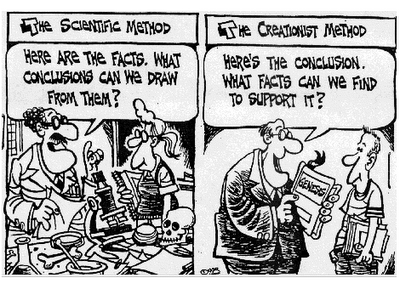Except that, two of those three are more philosophy based rather than purely scientific. Even in quantum mechanics, such concepts are either quantifiable or "novelties".Lonewolfm16 said:Science must make assumptions which cannot be proven. Whether these count as faith is a matter of semantics.
1: The universe exists
2: It is possible to learn things about the universe
3: Our senses are at least sometimes accurate, and relay information about the outside universe.
These can never be proven, yet are vital ot beggining science or any evidence based learning. We can never know whether what we see and observe through data is correct, and not changed by some unknown entity, or if there really is anything to observe out there, yet we must accept that evidence is a trustworthy means of determining things, which cannot be proven by evidence. As long as we are aware of these assumptions I see no problem with it.
Science operates on assumptions, of which can be proven wrong and adapted. Faith is an "infallible" belief that something is true, no matter what evidence may arise.
I actually displayed the definitions of faith and assumption in a previous post, so I won't do so here. It would just be redundant. (and space consuming)
[edit]
Actually, glancing at a few other posts, MeChaNiZ3D essentially said what I was going to say.
Good on you, Mechanized.MeChaNiZ3D said:There is a difference between what is reasonable to assume and what is possible. Science does not suggest some wild pie in the sky explanation and then say "Well you can't prove that isn't true", they look at evidence to determine the best explanation they can come up with. If a better one that fits the EVIDENCE more closely comes along, they go with that. But faith isn't even that, it's a belief in something whether or not the evidence is there, and that has no place in science.

